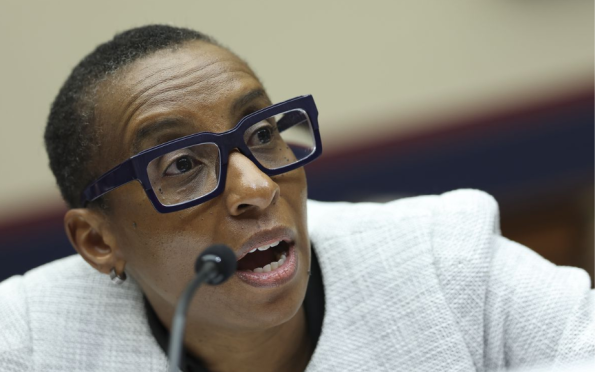Advocacy Journalism May Be Better Than Objective Journalism
Objectivity is the current standard in journalism, but should that be the case when it is unattainable, especially since an alternative exists?
April 23, 2022
People complain a lot about the news nowadays — fake news, biased news, out-of-context facts — so there’s been a push for the news media to be more “objective.”
Two major groups want objective news — the conspiracy theorists and everyone else.
Most conspiracy theorists are just using “non-objective” as a cover for the conspiracy itself — their idea of objective journalism is heavily skewed toward their own biases, beliefs, and values.
For the rest of the population, though, things get slightly more complicated. We generally have an intuitive understanding of what objectivity is, and it more or less goes along the lines of reporting straight facts without injecting any personal bias. Objective reporting would be something like C-SPAN, which simply broadcasts what’s going on in Congress and its committees. Most people would consider advocacy journalism as reporting that has personal biases, such as Fox being an obvious right-wing news outlet, whereas something like CNN might be considered left-leaning. This might lead people to think that advocacy equals fake news and misinformation, but that’s not exactly true. Humanitarian and human rights advocate Dr. Monika Hauser summarizes, ”Responsible journalism … is committed to truthfulness. Journalists conducting independent research in a war zone will develop an opinion or stance.” Advocacy journalism can undoubtedly be based on facts — it just portrays these facts in a way that reflects the views and biases of the journalist.
First, unconscious biases are an immutable part of reporting.
Everyone has unconscious biases, and when reporting on an issue, journalists can channel their unconscious biases into their word choice and linguistic connotations. “The wall of the building collapsed” and “There was damage to the wall of the building” share similar meanings but have different implications. Even though both are objective (reporting the facts), they still insert some form of journalistic bias into the final piece. Rob Wijnberg, a media correspondent and founding newspaper editor, confirms this, saying, “Describing the world with no idea of what’s good or bad, relevant or trivial, true or false is literally impossible. Behind every report, every feature, every news item, lies a worldview rooted [in bias].”
Choosing whether to report that story at all comes before asking whether that reporting is accurate or not; i.e., the action of picking stories to report is more significant than the issue of bias in the article itself.
Secondly, choosing which stories to report is in itself a form of advocacy.
Let’s say that an anti-vax politician died from a preventable disease. Choosing whether to report that story at all comes before asking whether that reporting is accurate or not; i.e., the action of picking stories to report is more significant than the issue of bias in the article itself. It doesn’t matter how the media portrays this incident if some anti-vax outlets choose not to bring attention to this at all. For a more extreme example, consider Tucker Carlson on Fox News. In the weeks before it passed, he constantly promoted former President Trump’s tax bill. The moment the unfair, regressive tax bill was passed (and subsequently ripped to shreds by everyone), though, Carlson suddenly stayed mum on the topic of the bill, instead opting to talk about other issues, ultimately keeping his viewers ignorant about the tax bill. Even if Carlson was someone who only reported objectively, the act of choosing which story to report in itself is an extension of journalistic bias.
Third (and most importantly), the notion of objectivity and “wrong sides” undermines democracy and has the possibility of precluding democracy’s growth.
Democratic discourse is a key component of a functioning system of government. Many people have the notion that there are wrong perspectives on an issue — best exemplified in political issues. Conservatives often view liberal perspectives as “wrong” and vice versa — but the premise of “incorrectness” paves the way to an authoritarian (or otherwise restricted) form of press. Conflict in the press is a reflection of a democratic society, and conflict in democracy brings power to more voices and encourages the transfer of ideas and perspectives, ultimately improving society for all.











